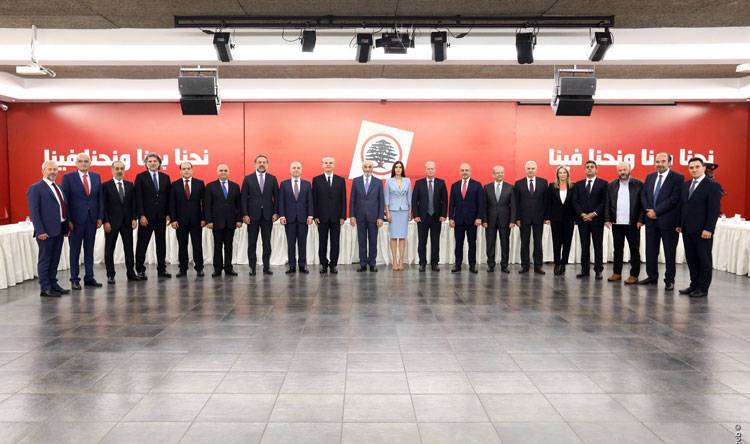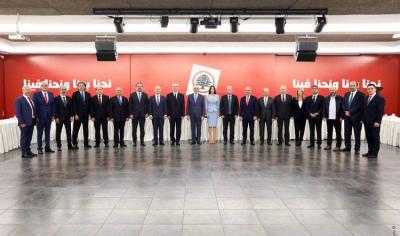The “Strong Republic” bloc considers that “invoking dialogue to address major contentious issues, in order to reach common solutions, is a blatant act of deception. This is because dialogue among the Lebanese regarding major issues, including security, took place in the Taif city after the end of the war, resulting in the National Accord Document. Therefore, the essence of this dialogue is the Taif Agreement.”
In its regular meeting, the bloc pointed out that “any call for dialogue on fundamental issues, and consequently any response to this call, is an explicit act of evasion from the institutions and their roles on one hand, particularly the House of Representatives which is responsible for electing the president, and an explicit evasion from the National Accord Document on the other hand, while the solutions to the contentious matters agreed upon by all Lebanese, including weapons and sovereign decisions, are clearly stipulated in the Taif Agreement.”
It emphasized that “dialogue about detailed and daily issues, whether through a general assembly, parliamentary committees, or others, should occur exclusively within constitutional frameworks, just like executive issues, which should be discussed in the Cabinet.”
In the meeting chaired by the head of the Lebanese Forces Party, Samir Geagea, the attendees believed that “the dialogue desired by the opposition aims only to overthrow the Taif Agreement and undermine the Lebanese constitution, contradicting the system and public order, such as entrenching the obstructive third for a specific group, the third signature, and monopolizing the state’s strategic decision in a way that contradicts the essence and provisions of the Taif Agreement.”
The bloc announced its commitment to the “Lebanese Forces” to the National Accord Document and constitutional institutions, as well as its non-rejection of dialogue as a principle, resorting to it always through side discussions and within institutional constitutional frameworks, clarifying that confronting obstruction and deriving solutions to crises cannot be achieved through unconstitutional sessions called “dialogue,” but in constitutional institutions and through legal mechanisms, which are manifested in open electoral cycles that lead to the election of a new president.




